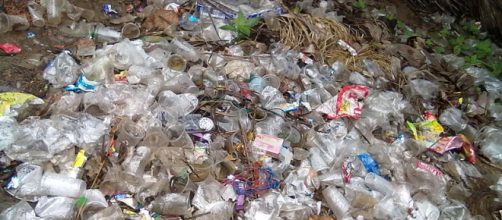Recycling of plastic waste is a practical solution to tackle the menace of the non-biodegradable material that keeps piling up in landfills or ending up in oceans. They threaten the environment and disturb the ecological balance. Whether we like it or not, the use-and-discard philosophy behind plastic products has become an integral part of our lives. Freedom from its ill effects can happen only if these are recycled.
CNN reports that right now less than 10 percent of plastic waste gets recycled. In order to expand the horizon, a Canadian woman has developed a chemical process that can tackle this issue.
It involves breaking down the plastic into chemicals that can, subsequently, be used as building blocks for other useful plastic products. These could be nylon for clothes, shoe soles, and even some spare parts for automobiles.
Plastic waste can be recycled
The woman is 23-year-old Miranda Wang and her company is BioCellation which is dedicated to the cause. Efforts to recycle plastic waste have been undertaken in the past but the large variety of plastics has been a major hurdle. They involve items like plastic bottles to carry bags and a common method must be found to recycle all types.
Plastic pollution is a menace and its effect on the environment is well known. Birds fall prey to plastic when they mistake it for something edible, and, when microplastics enter the food chain, they wreak havoc on marine lives.
An unimaginable volume of plastic finds its way into the oceans on a regular basis and much more ends up in landfills. Hence, in view of the non-biodegradable nature of the products, it is necessary to explore suitable methods to end the practice.
Encourage recycling of plastic waste
Keeping in mind the need to preserve the environment and tackle the plastic waste that belongs to the non-biodegradable category, Miranda Wang and her company BioCellection have taken the lead in this endeavor. Her aim is to recycle all types of plastics. She believes that the process which has been developed is cheaper compared to existing ones.
BioCellection has attracted attention in the industry and efforts are on to work with big names to expand the scope of operations.
The dream is to impart a new meaning to plastic waste destined to go to landfills or end up in the oceans as threats to marine life. The unwanted litter must be recycled and converted into products that can be useful to society.


